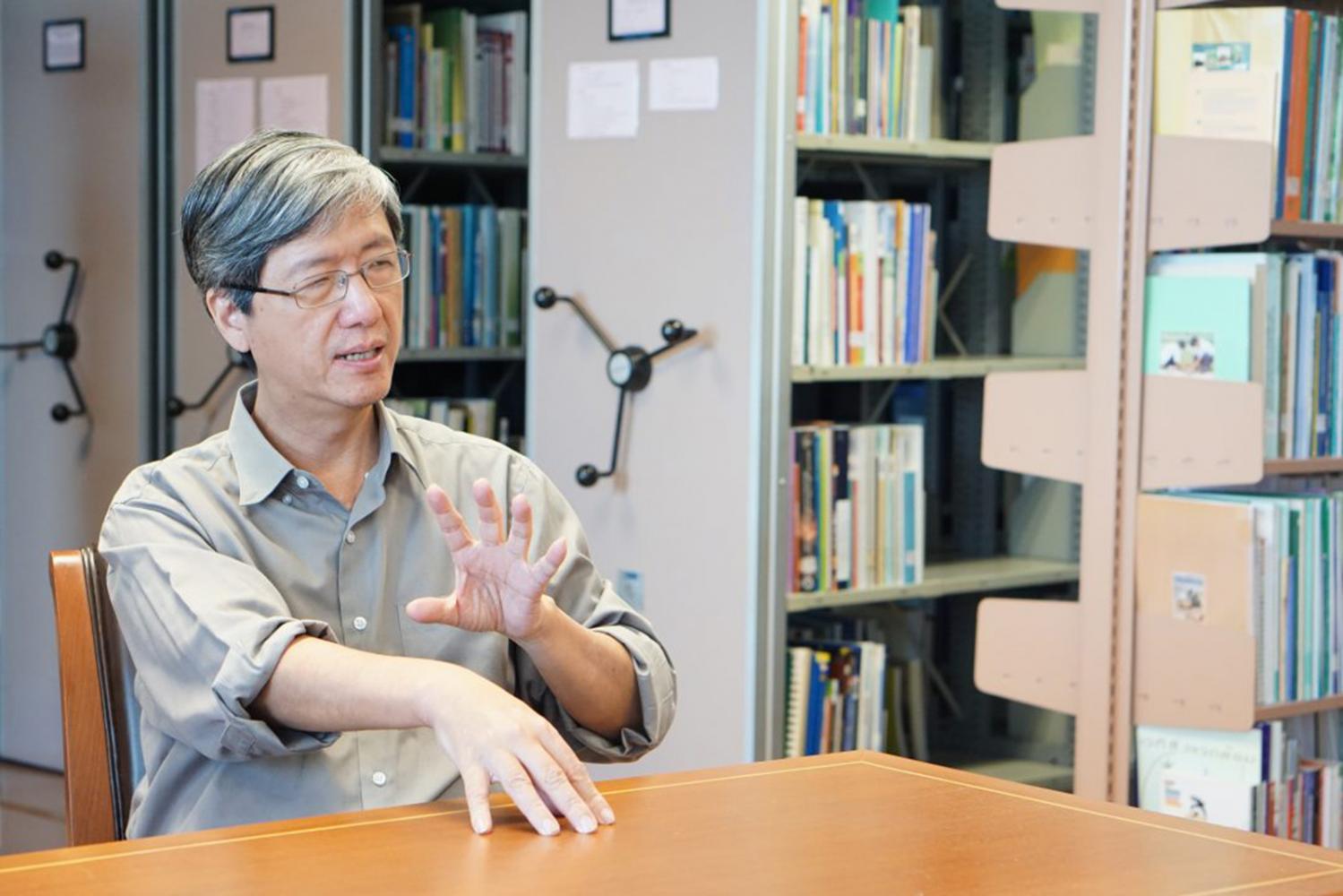
The Pheu Thai Party's "digital wallet" policy, designed to woo voters ahead of the May 14 general election, has drawn a mixed reaction from politicians and the public alike.
Economists have cautioned against stimulus spending as it could fuel inflation and lead to a hike in prices of consumer goods. They say investing in upgrading skills and projects to reduce the digital divide are less costly and a better way to stimulate the economy.
Under Pheu Thai's scheme, Thais over 16 years old will be given a digital wallet with 10,000 baht to be spent within six months at shops within a 4-kilometre radius of where they live.
According to Pheu Thai, the programme is a one-time giveaway aimed at spurring local economic activity and driving GDP growth to 5%. Once it kicks in, it will also help boost revenues from taxes from shops whose sales will increase as a result, the party said.
Likely tax revenue from the digital wallet project would reach 100 billion baht, while the budget required to fund the scheme is approximately 500 billion baht, the party says.
The Election Commission (EC) has sprung into action, warning parties which offer policies involving budget spending that they are legally required to provide the details, including sources of funding, risk and cost-effectiveness.
While Pheu Thai's campaign policy has also caused a stir among analysts, who see it simply as a populist policy designed to capture votes, traders say they need the relief.
Trends don't warrant stimulus
Somchai Jitsuchon, research director for inclusive development at the Thailand Development Research Institute (TDRI), said the economic situation does not warrant pumping money into the economy.
The outlook is favourable due to a strong rebound in the tourism sector which is fuelling growth, he said. "More Chinese tourists are coming and this will provide a boost to the economy and put money in people's pockets. I don't think it's the moment to do it," he said.

Somchai: Not the right moment to do it
Mr Somchai also said inflation remains a cause for concern as the country is on the path to recovery and another stimulus spending scheme to stimulate demand can add pressure to it.
"When inflation soars and goods prices rise, your purchasing power doesn't increase, even if you have more money. And it's hard to bring down inflation. There'll be trouble when the money is gone and inflation remains high," he said.
Mr Somchai is not opposed to spending, but he said there are more effective ways to spend to foster economic recovery.
"It doesn't mean the country can't spend. It depends on what we spend. When stimulus measures are unnecessary, we should focus on building and strengthening infrastructure for development, or upskilling and reskilling workers," he said.
The next government should implement a policy based on Singapore's SkillsFuture scheme in which people receive subsidies to enrol in skills upgrading courses.
The programme should target people aged 16 and over who left education at lower secondary school level and the private sector should design training courses to ensure they meet market demand, he said.
He said the budget required for skill upgrading could be 60 billion baht, which is small compared with spending schemes offered by parties so far that provide no guarantee that the economy will benefit.
"It's hard to see the long-term benefits from parties' policies. Some are really for short-term good and it seems to me that parties are trying to outdo each other [by promising bigger handouts]," he said.
Another project that would be better than a cash giveaway is expanding internet coverage across the country so rural communities can gain internet access. "We are getting to the digital economy, but not everyone will benefit from it. Think about the poor in remote areas with no internet access. It's an effective tool for their learning," he said.
In the face of countless promises from parties, Mr Somchai said people should ask themselves what is better between short-term and long-term benefits.
Three questions to answer
Thanawat Polvichai, rector at the University of the Thai Chamber of Commerce, said populist policies are now the norm during the election season. Parties are not prohibited from making proposals, which is why parties must answer three questions when floating them.
Under the organic law on political parties, when making proposals that involve budget spending, parties are required to specify sources of the fund; conduct cost-benefit analyses to see if it is worth spending and outline benefits or impacts.
"Another question that should be asked is if [the proposed spending] is necessary. For me, parties must clear these questions in the first place. People shouldn't ask these questions again," he said.

Thanawat: Parties must answer questions first
According to Mr Thanawat, the law requires parties to address those three questions because spending policies can affect the country's financial status.
While a scheme can be implemented without borrowing, the next question is if it is worth spending. A simple way to look at it is to see how much one gets back from spending 1 baht, he said.
"So, a state project must be worth the spending. When the government borrows to fund a project, it should get it back in the form of tax collection. Whether state spending is to stimulate consumption or for investment, that is the answer to the third question," he said.
Mr Thanawat said the challenge involving populist schemes lies in distinguishing a good one from a risk-fraught one. A good one should focus on middle- or long-term solutions such as reducing disparity, increasing competitiveness or strengthening the welfare safety net, he said.
Based on the country's goal of achieving 5% growth, the economy, which is projected to grow at an estimated 3%, is not in need of a short-term stimulus programme, he said, arguing the tourism industry is heading for strong recovery, exports still look good and foreign investments will flow in through the EEC.
However, spending is required to help attain the 5% growth target, he said. "The next government should improve the country's potential with middle- or long-term investments in infrastructure or development of the digital economy, which is different from cash handouts in the form of a digital wallet," he said.
'Handouts create a burden'
Phichai Ratnatilaka Na Bhuket, programme director for politics and development strategy at the National Institute of Development Administration, said Pheu Thai's digital wallet policy is a populist project in the extreme.
While the policy can provide a short-term boost to the economy, it could do more long-term harm than short-term good, he said, adding the country may need to borrow or make budget cuts to fund the programme, which can raise public debt levels and inflation.

Phichai: Pheu Thai's policy is too 'extreme'
Mr Phichai said the policy is designed to capture support from undecided voters to help Pheu Thai -- which aims to win 310 seats -- meet its landslide victory goal.
According to Nida Poll, the party will grab between 240 and 260 seats from the constituency and party-list system.
"We think the party needs something to attract voters and this policy is intended to draw undecided voters.
"But given negative feedback and the saturated support base, we think it is unlikely to work out for the party," Mr Phichai said.
Former central bank governor Tarisa Watanagase also raised questions on how the party would raise enough money to implement the digital wallet policy, which requires 500 billion baht, or up to 18% of budget expenditure.
The government would have to borrow to offset the deficit, which would increase public debt, while the policy itself would provide only temporary impacts to boost the economy, she said.
With the economy forecast to grow 3–4% next year, she said there is no need for the stimulus and criticised the proposal as irresponsible and a bid to pamper voters at the expense of fiscal discipline.
'A shot in the arm'
Jadet Chaowilai, manager of the Friends of Women Foundation, welcomes parties' proposals to boost people's income and welfare benefits.
He said the economic situation has not fully improved, adding although the tourism sector is picking up, unemployment remains and foreign investment falls short of the target.
Mr Jadet said Pheu Thai's digital wallet policy is not about simply wooing voters ahead of the election, but the party's determination to address economic problems.

Jadet: The party's policy is 'good enough'
The party also pledges to hike daily minimum wages to 600 baht in four years.
The 10,000-baht digital wallet policy has struck the right note with small-time vendors interviewed by the Bangkok Post, although some are not quite sure how it works.
Kanyarat Heman, 29, food vendor, said people are in need of relief from the 10-year economic slump and the government must act swiftly to ease their plight.
"I don't quite understand what it is, but from what I heard it gives out money to stimulate the economy, so it is a good enough policy.
"I've seen this work under the Khon La Khrueng co-payment scheme," she said.
Orawan Thaweenant, 31, a sweets vendor, said economic activity has been slow and the sooner that stimulus measures are rolled out, the better.
"I don't mind although some criticise it as a vote-wooing policy. It isn't corruption. And the cash giveaway comes from our taxes," she said.
However, Preeyapat Raksatsana, a student and first-time voter, poured scorn on Pheu Thai's digital wallet policy, saying it is not sustainable and is close to vote-buying.
She said she is looking for policies that promote long-term benefits such as employment opportunities for new graduates and new markets and loans for small-time operators.
